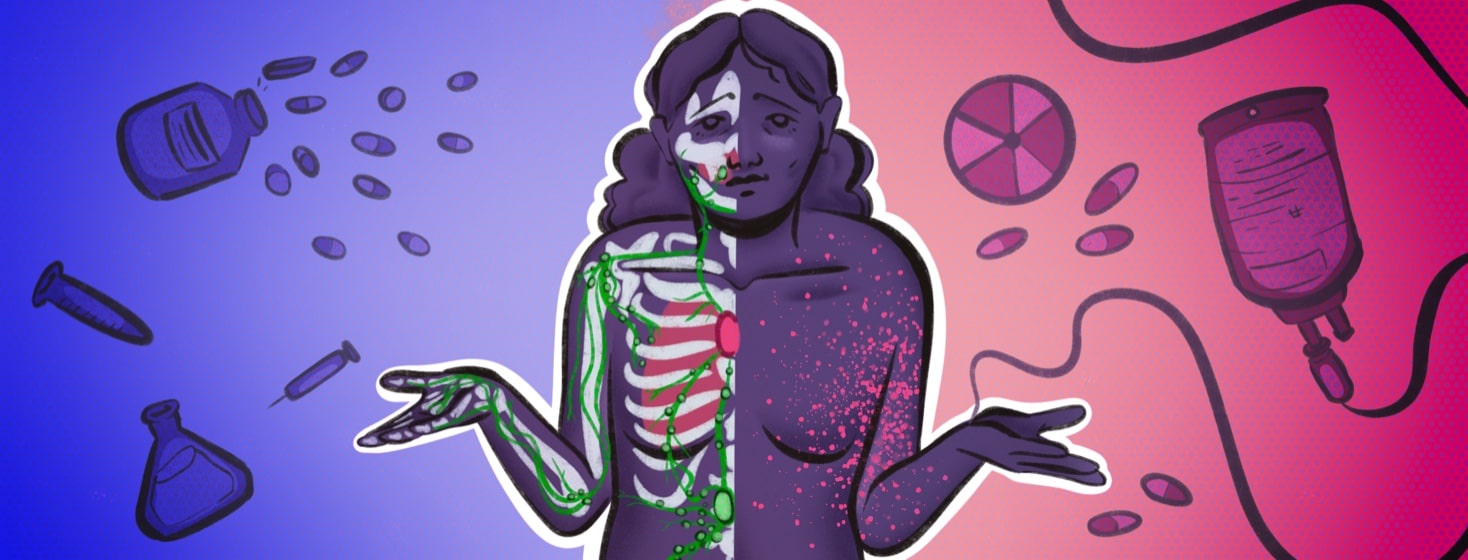Cancer Treatment: Immunotherapy Versus Chemotherapy
More people may know of chemotherapy or chemo as a cancer treatment. But immunotherapy is gaining traction, and for good reason. Immunotherapy is a promising advancement in the treatment of many cancers. It has even become the first line of treatment for some cancers.1
Bladder cancer, for example, has a long track record with immunotherapy. One of the first immunotherapies approved by the US Food and Drug Administration was in 1990 for bladder cancer.2,3
So, how does immunotherapy differ from chemotherapy? And what is right for you?
What are immunotherapy and chemotherapy?
Both immunotherapy and chemotherapy target tumor cells. But they use different methods. Immunotherapy acts on your immune system. Chemo acts on the cancer cells growing inside you.
Cancer immunotherapies work in several different ways to alert and train a person's immune system to identify and destroy cancer cells. The therapies do this by triggering a stronger than normal immune response.1
Basically, immunotherapy trains the immune system to recognize cancer cells and then turns the immune system against the cancer. The idea of harnessing the human immune system to fight cancer dates back more than a century.3
Ideally, immunotherapy produces immune cells that can seek out and eliminate cancer cells.4
Chemotherapy works differently. It is a drug that directly attacks fast-growing tumor cells by targeting all rapidly dividing cells inside your body. But sometimes healthy cells also get destroyed in the process.1
How do I know which is better?
There are pros and cons to each treatment. What treatment is right for one person may not be right for another. Differences between immunotherapy and chemotherapy include:1,2
- Treatment time – The treatment length for each therapy is driven by many different factors. To begin with, treatment will be unique to you and your cancer. But in addition, immunotherapy may continue working even after the treatment period has ended. In contrast, chemo destroys cancer cells only while the drugs are in your body.
- Side effects – Immunotherapy can result in an overstimulated immune system. Side effects range from mild, such as skin rashes and diarrhea, to severe. Chemo sometimes destroys healthy cells that divide rapidly. For example, it may destroy cells in your hair follicles, causing you to lose hair. Or it may damage cells in your gut lining, causing you nausea.
- Length of time to noticeable results – The effects of immunotherapy may take longer to notice than the effects of chemotherapy. Chemo can shrink tumors quickly. But during the initial stages of immunotherapy, tumors may appear to first grow before shrinking. This seeming growth is likely due to immune cells penetrating the tumor and causing it to appear larger.
Can I use both?
Traditional cancer treatments include various combinations of immunotherapy, chemotherapy, and surgery. Treatment will often depend upon the type of cancer you have and its location.
But the lines between immunotherapy and chemotherapy are blurring. For example, some of the newer immunotherapies include built-in anti-cancer drugs. Called antibody-drug conjugates, they send antibodies carrying chemotherapy drugs directly to the cancer cells. Delivering the toxic drugs straight to the cancer cells can lessen some of the worse side effects of traditional chemo.5
Ask your doctor what treatment is best for you. Keep in mind that your treatment will be tailored to your specific cancer. Tell us about your experience in the comments below or share your story with the community.

Join the conversation